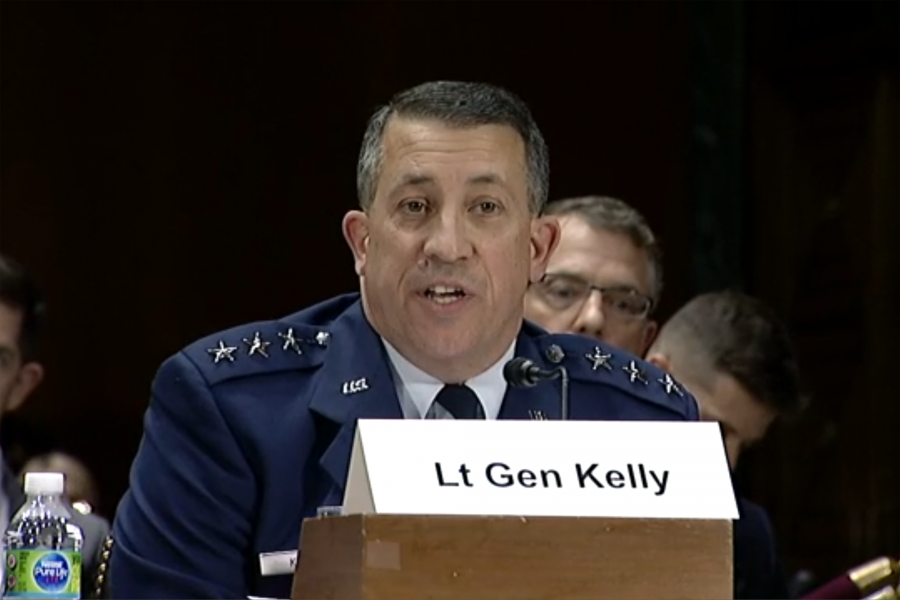The Air Force remains committed to curbing suicides and plans to hold more resiliency stand downs so commanders can continue to connect with Airmen and encourage them to seek help if necessary.
But in prepared testimony to the Senate Armed Services personnel subcommittee on March 11, leaders also emphasized that suicide prevention remains a “difficult challenge.” In fact, a total of 137 Airmen committed suicide in 2019—a 33 percent increase from the 103 suicides in 2018—despite past efforts.
The rising number of suicide deaths led to the implementation of a one-day resilience tactical pause, which was first announced in July 2019. Since then, the Air Force has received more than 12,000 responses from the force on ongoing resilience efforts, wrote John Fedrigo, principal deputy assistant secretary for manpower and reserve affairs, and Lt. Gen. Brian Kelly, deputy chief of staff for manpower, personnel, and services, in prepared testimony to the subcommittee.
“This feedback has highlighted the need to continue RTP efforts allowing our force time to personally connect, clarify existing resources, and reduce the stigma” related to seeking help, wrote Fedrigo and Kelly.
Based on this feedback, the service decided to expand its True North program, which began beta testing at Whiteman Air Force Base, Mo.; Minot Air Force Base, N.D.; Joint Base Elmendorf-Richardson, Alaska; and Beale Air Force Base, Calif., in July 2018. USAF now is embedding mental health providers and religious support teams in units across the force, and officials say “initial results are promising.”
Funding for the program has increased significantly from $9.9 million in fiscal 2019 and 2020 to $53.3 million in the service’s 2021 budget request. “This growth will expand the program to fully service all four beta test locations, plus 12 additional installations, while also covering Air Support Operations Squadrons and Rescue Squadrons (Air Force)-wide,” write Fedrigo and Kelly.
Installation priority is based on a five-year analysis of suicides, sexual assaults, domestic violence, child maltreatment, and other violence.
Also based on the post-pause guidance, the Department of the Air Force Community Action Team has developed five suicide prevention priorities for 2020. They include:
- Improving the Total Force suicide prevention training
- Strengthening the implementation of suicide prevention programs
- Encouraging “lethal means safety”
- Empowering and equipping family members regarding suicide prevention
- Enhancing suicide “postvention” procedures
In the last year, the Air Force has distributed 150,000 gun locks “at no cost to our members,” as well as educational materials and training on safe gun storage. More than 70 percent of USAF suicide deaths involved firearms, according to the testimony. While the locks will not stop Airmen from taking their own lives, the Air Force hopes it will “put time and space between our members distress and access to lethal means,” wrote Fedrigo and Kelly.
The Air Force also is building partnerships with academia, industry, and its sister services to ensure it is utilizing all the best available resources to end suicide. As part of this effort, USAF is planning a National Suicide Prevention Summit for late 2020, which will be modeled on similar discussions at U.S. colleges, universities, and service academies on sexual assault and harassment.
“Leaders at all levels are needed to help reinforce the notion that seeking help is a sign of strength and our Air and Space professionals do not need to go it alone,” they write. “While suicide is a difficult and complex issue requiring complex solutions, it is preventable and the DAF remains committed to leveraging the best ideas and research to end the tragedy of suicide.”
